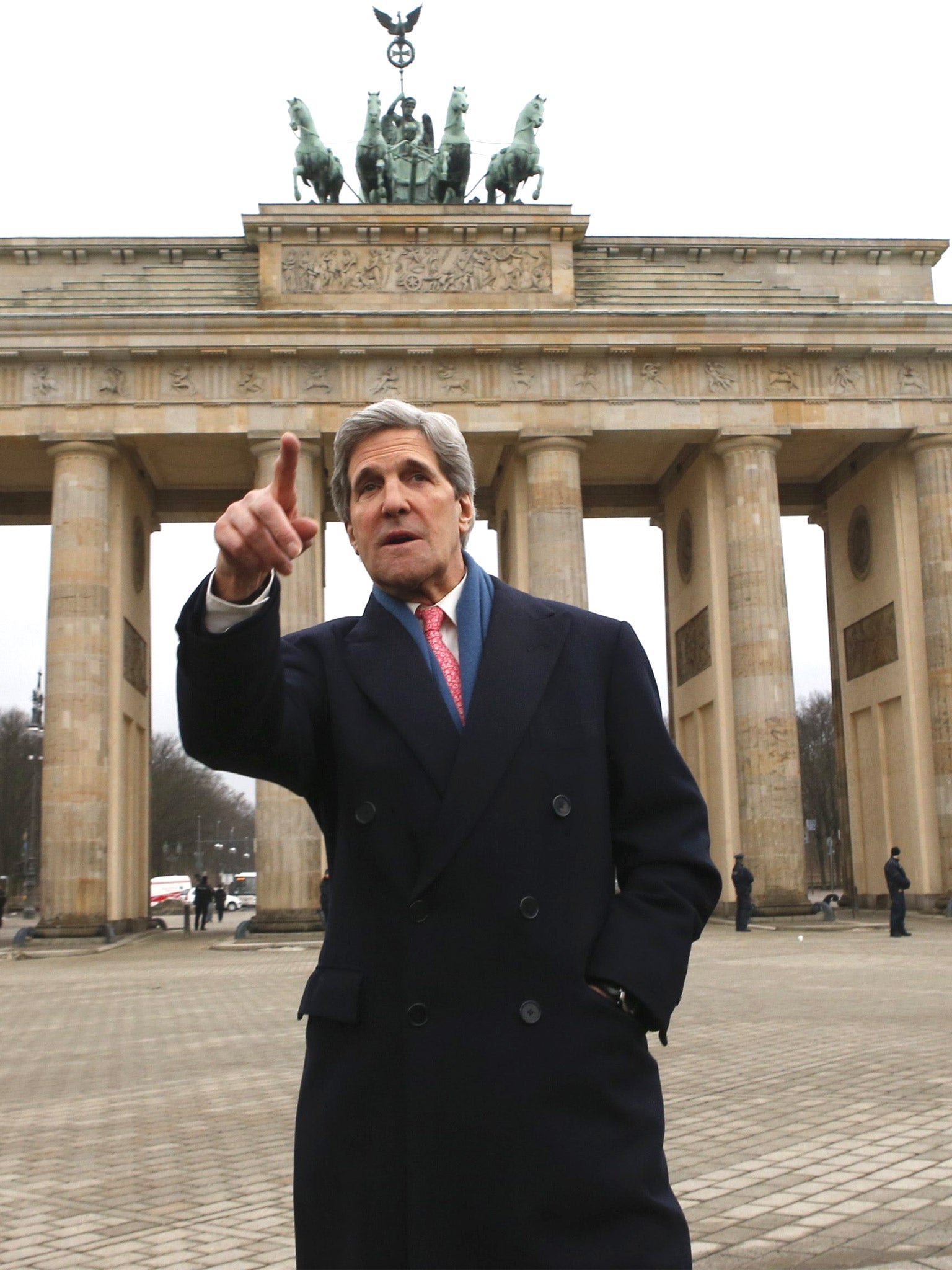John Kerry's Berlin visit is a chance to reminisce... and look ahead

Your support helps us to tell the story
From reproductive rights to climate change to Big Tech, The Independent is on the ground when the story is developing. Whether it's investigating the financials of Elon Musk's pro-Trump PAC or producing our latest documentary, 'The A Word', which shines a light on the American women fighting for reproductive rights, we know how important it is to parse out the facts from the messaging.
At such a critical moment in US history, we need reporters on the ground. Your donation allows us to keep sending journalists to speak to both sides of the story.
The Independent is trusted by Americans across the entire political spectrum. And unlike many other quality news outlets, we choose not to lock Americans out of our reporting and analysis with paywalls. We believe quality journalism should be available to everyone, paid for by those who can afford it.
Your support makes all the difference.The first time John Kerry was in Berlin, he was a boisterous boy of 10 risking his father’s diplomatic standing with clandestine bicycle rides into the Russian sector of the Cold War city.
Today he returned as America’s top diplomat, but it was still the Russians providing the challenges for the newly appointed US Secretary of State.
“It is wonderful to be back in Berlin,” Mr Kerry said after meeting his German counterpart, Foreign Minister Guido Westerwelle. Later, he was due to meet his Russian counterpart, Sergei Lavrov, to discuss the civil war in Syria. Mr Kerry has used the promise of more American aid to persuade the Syrian opposition to drop its boycott and attend a meeting on the crisis in Rome tomorrow. But prior to his departure to Berlin, Mr Lavrov accused the Syrian opposition of harbouring “extremists” who were blocking a solution, signalling that the Kremlin remained firm in its support for President Bashar al-Assad.
But there was more of a meeting of minds with Chancellor Angela Merkel. Mr Kerry indicated that a free-trade agreement with the European Union could be up and running within two years. Both sides agreed that a free-trade deal would boost economic growth without incurring new debt and provide fresh impetus for Europe’s ailing economies.
“Germany is without doubt one of our strongest allies worldwide,” Mr Kerry said.
Ms Merkel said she attached “more than great importance to the transatlantic relationship” between the two countries.
The EU estimates that the removal of customs barriers resulting from a free-trade arrangement could create tens of thousands of jobs in Europe.
Mr Kerry lived with his parents in the then Cold War capital when his father, Richard, served as a legal advisor to the American high commissioner in 1954. It was before the Berlin Wall was built and tensions between the West and the Soviet Union were running high.
Mr Kerry recalled cycling off into the forbidden Russian sector of the city past bombed-out apartment blocks and checkpoints. His father was furious when he found out. When he returned home, Mr Kerry said, his father “got very upset with me and said, ‘You could have created an international incident. I could have lost my job’. So I lost my passport and I was grounded and I never made another trip like that.” Mr Kerry recalled how on another occasion, a family sailing excursion on Berlin’s Havel river ended in panic after their boat started drifting towards the shore in the Soviet sector, which was patrolled by armed border guards. “It was a triggering period in my life. I became profoundly intrigued by global confrontation,” he said.
In Berlin, Mr Kerry spent part of his visit talking to young Germans in a packed internet café. He said his Cold War experiences had made him acutely aware of the need for tolerance.
Join our commenting forum
Join thought-provoking conversations, follow other Independent readers and see their replies
Comments